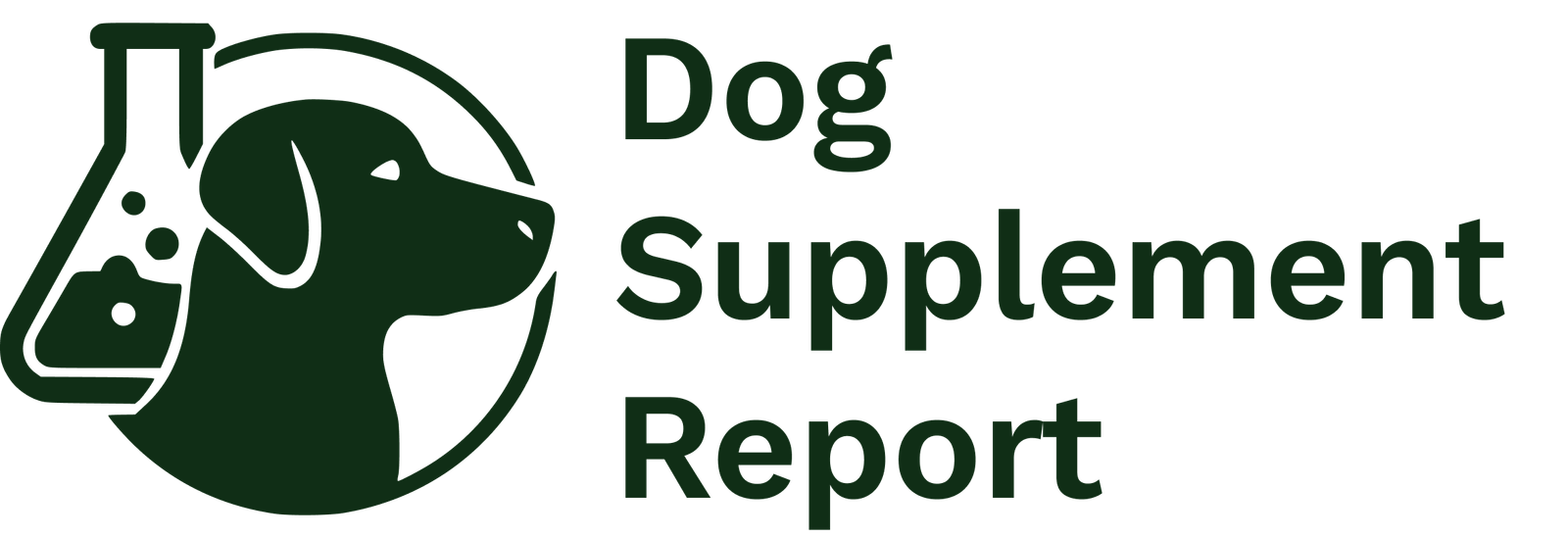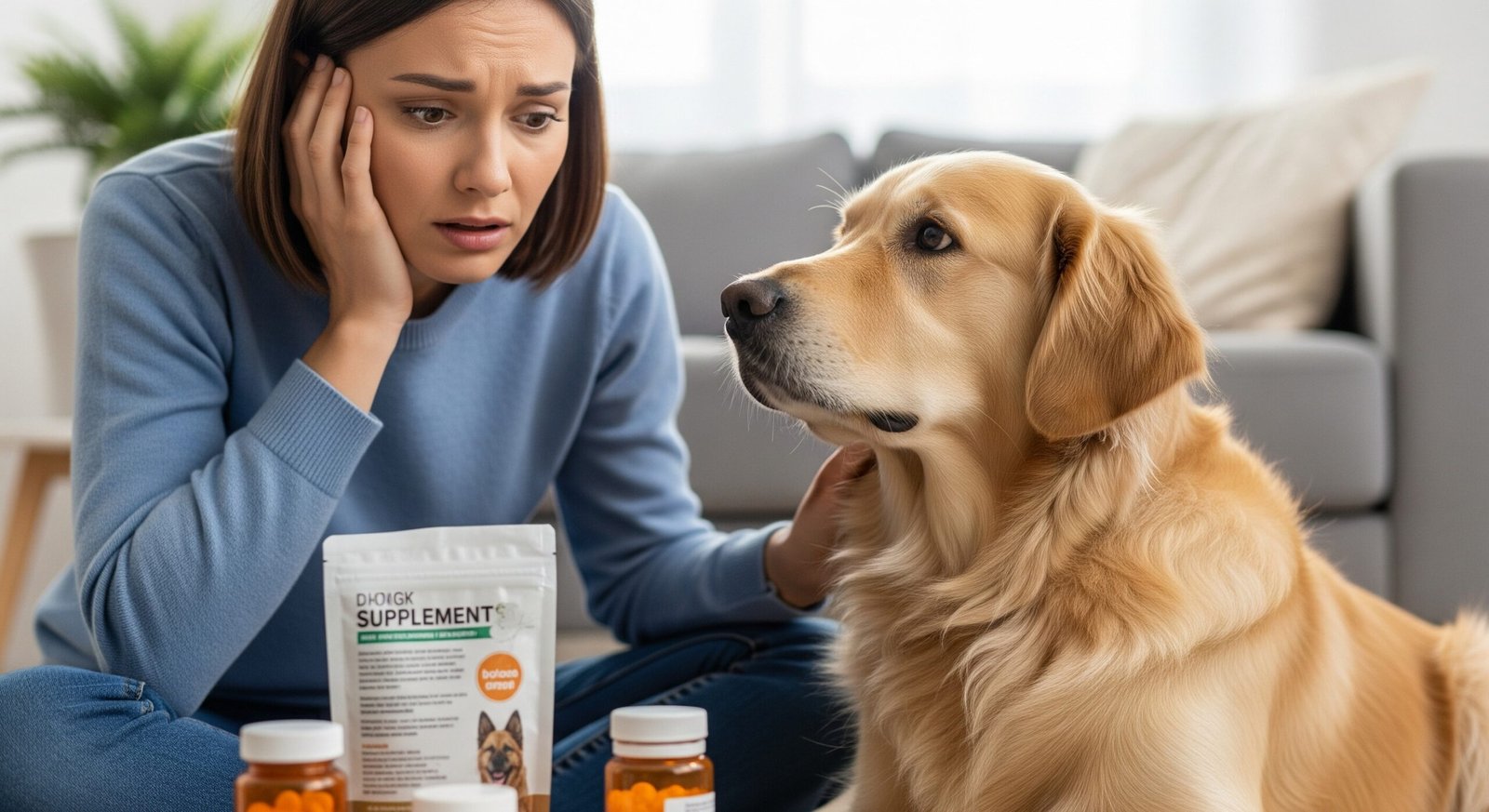Key Takeaway: While many dietary supplements for dogs are marketed as safe and natural, they can pose risks ranging from mild gastrointestinal upset to life-threatening toxicoses. Adverse effects depend on the supplement class, dose, formulation, and individual patient factors. Always consult a veterinarian before beginning any supplement regimen.
1. Gastrointestinal Disturbances
Supplements commonly cause transient digestive side effects, especially when initiated abruptly or overdosed.
- Probiotics: Up to 10% of dogs experience diarrhea, vomiting, gas, or bloating during the first 1–2 weeks of probiotic introduction due to microbiota shifts.
- Omega-3 Fatty Acids: Fish-oil supplementation can induce mild GI upset (loose stools, flatulence) in 5–15% of dogs at typical clinical doses (e.g., 50–100 mg EPA + DHA/kg/day).
2. Nutrient Excess and Toxicities
Excessive intake of fat- and water-soluble vitamins or minerals can lead to toxicity.
- Vitamin D: Over-supplementation may cause hypercalcemia, resulting in vomiting, polyuria, muscle weakness, and renal failure.
- Vitamin A: Chronic high doses (> 10 × daily requirement) can induce bone demineralization and spinal cord compression.
- Iron: Ingestion of human multivitamins containing iron can produce GI corrosion, hemorrhage, metabolic acidosis, and even death.
- Calcium/Vitamin D Combinations: Lead to hardening of soft tissues and kidney damage when above recommended 0.27 g Ca/kg/day.
3. Platelet Function and Bleeding Risk
- Omega-3 Fatty Acids: EPA/DHA alter platelet aggregation, prolonging bleeding time in up to 25% of dogs; caution is advised in dogs undergoing surgery or on anticoagulant drugs.
4. Hepatic and Renal Effects
- Herbal Supplements: Certain botanicals (e.g., comfrey, kava) contain hepatotoxic pyrrolizidine alkaloids, risking liver injury.
- High-Dose MSM: Rodent studies show organ atrophy at excessive doses; canine safety margins for long-term use are undefined.
5. Drug–Supplement Interactions
- NSAIDs + Omega-3: May potentiate anti-platelet effects, increasing gastrointestinal bleeding risk.
- Herbals + Medications: Garlic and gingko can enhance NSAID-induced bleeding; St. John’s wort induces cytochrome P450, altering drug metabolism.
6. Allergic and Immune Reactions
- Probiotics: Rare hypersensitivity presenting as urticaria or anaphylaxis after administration of yeast-derived formulations.
- Multivitamins & Additives: Fillers, flavorings (e.g., xylitol, artificial sweeteners) can provoke allergic dermatitis or acute hypoglycemia in dogs.
7. Quality and Labeling Concerns
- Contaminants: Unregulated supplements may contain undeclared toxins (heavy metals, mycotoxins) or pharmaceuticals (steroids, NSAIDs) leading to unexpected adverse effects.
- Potency Variability: Independent analyses reveal up to 80% of products fail to meet label claims for active ingredient concentrations, risking under- or over-dosing.
8. Mitigation Strategies
- Veterinary Consultation: Review all supplements with a veterinarian, especially in dogs on concurrent medications or with chronic diseases.
- Start Low and Go Slow: Initiate at half the recommended dose and titrate up while monitoring for GI signs, appetite changes, or behavioral alterations.
- Choose Proven Products: Select supplements with peer-reviewed clinical trials, third-party testing (e.g., National Animal Supplement Council), and clear labeling of active ingredients.
- Monitor Periodically: Check complete blood counts, serum biochemistry (especially liver and kidney panels), and coagulation profiles when using long-term or high-dose supplements.
Conclusion
Although many canine supplements offer therapeutic benefits, they are not without risk. Gastrointestinal upset, nutrient toxicoses, altered hemostasis, and organ dysfunction have been documented across supplement classes. Rigorous veterinary guidance, cautious dosing, and high-quality products are essential to minimize adverse outcomes and ensure canine safety.

